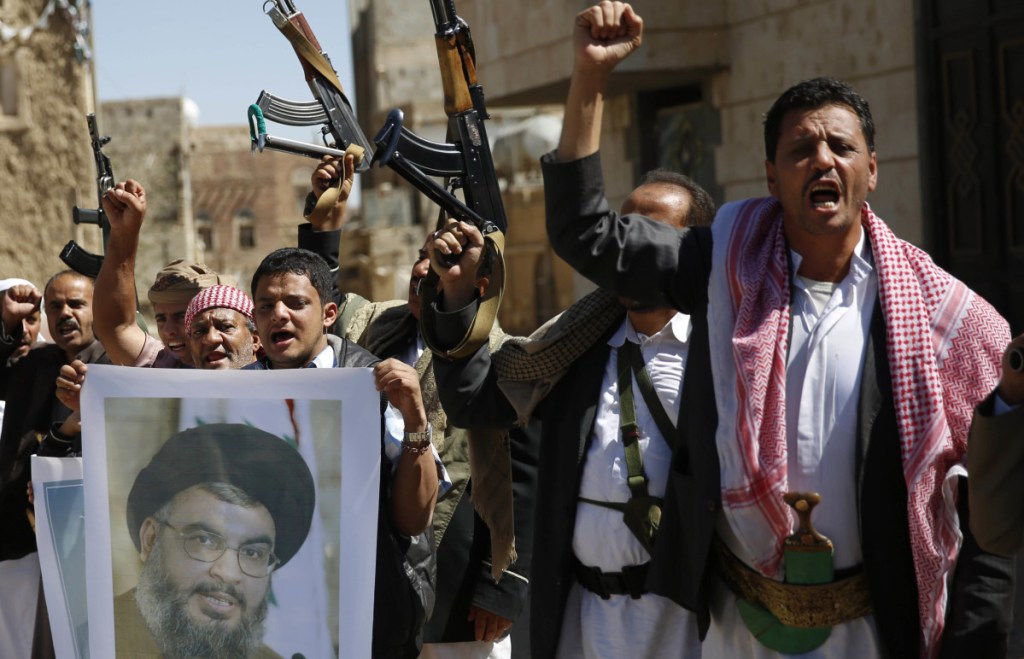CAIRO — New U.S. calls for a cease-fire in Yemen have raised the prospect of ending a disastrous civil war that has caused the world’s worst humanitarian crisis, but previous rounds of talks have failed and thus far neither side shows any sign of backing down.
This week, U.S. Secretary of State Mike Pompeo called for a “cessation of hostilities” and Defense Secretary Jim Mattis said the truce should happen within 30 days and lead to U.N.-led talks. Their remarks mark a shift in the position of the United States, which has backed the Saudi-led coalition in its 3½-year war with Iran-aligned Houthi rebels.
The White House has come under mounting pressure to rein in Saudi Arabia since Saudi agents killed journalist Jamal Khashoggi last month in their Istanbul consulate. The slaying has also brought renewed attention to the conflict in Yemen, which has killed thousands of civilians and driven the Arab world’s poorest country to the brink of famine.
But the Saudi-led coalition is unlikely to accept the current battle lines for long since they leave the Houthis in control of much of the country, including the capital, Sanaa, and the major port city of Hodeida. The two U.S. allies leading the coalition – Saudi Arabia and the United Arab Emirates – have yet to comment on the proposal.
The rebels welcomed the calls for a truce as “positive” on Thursday, while urging international action to halt the Saudi-led air campaign, which has caused the bulk of civilian casualties.
Mohamed Ali Al-Houthi, a senior rebel leader, said those urging a cease-fire should “translate their desire to bring peace in Yemen into action, stop the bombing of Yemenis immediately and lift the siege on Yemen.”
Meanwhile, the coalition has been massing troops on the outskirts of the Red Sea port of Hodeida, the entry point for 70 percent of food imports and international aid, according to Yemeni officials, including some who are inside the city. Rebels were taking up positions along the front lines. All officials spoke on condition of anonymity because they were not authorized to brief journalists.
UAE-led forces have been trying to capture the city for months, but have been halted on its outskirts by the Houthis, seasoned fighters who have held their ground despite years of heavy airstrikes.
The coalition has waged war on the Houthis since March 2015 in an effort to restore Yemen’s internationally recognized government, whose authority has been largely confined to the southern city of Aden since the rebels seized Sanaa and much of northern Yemen in 2014. The war is widely seen as a proxy battle pitting Saudi Arabia and the UAE against Iran.
U.N. envoys have hosted several rounds of peace talks but have made no progress. The Saudi-backed government has demanded that the Houthis withdraw from Sanaa and other areas, something the rebels have always refused to do.
The Yemeni government welcomed the cease-fire calls and said it was ready to discuss “confidence-building measures,” while accusing the Houthis of “intransigence” in past negotiations.
Sultan al-Samaey, a member of the Houthis’ Political Council, said the first step was to end the attacks by “aggressor states which are supported by the United States of America.” But he said that over the longer term, the rebels would only support “a peace which will preserve our independence,” without elaborating.
Saudi Arabia is unlikely to agree to any solution that would leave a Houthi-run entity on its southern border. The Houthis have repeatedly fired long-range missiles into Saudi Arabia and have struck its capital, Riyadh.
Ordinary Yemenis have suffered immensely as the stalemated war has dragged on, but even so, many expressed skepticism about the Trump administration’s calls for a cease-fire, especially one that would leave the country divided.
Ayoub al-Tamimi, a pro-Houthi political activist in Sanaa, said a cease-fire would “plant land mines in the future of the region.”
“There is no solution that can come from (President) Trump or the Democrats, only booby traps,” he said.
In areas closer to the fighting, even a temporary reprieve would be welcome. The conflict in Yemen has so far killed an estimated 10,000 people and left around two-thirds of the population of 27 million relying on aid, with more than 8 million at risk of starvation.
The International Committee for the Red Cross said Wednesday that its team in Hodeida this week found dreadful living conditions for thousands of displaced families, “who own only the clothes they wear and survive on a little rice or a thin mix of flour and water, if they find any food to eat at all.”
“We know this is out of humanitarian hands, we know this is a political issue,” Avril Patterson, the ICRC’s health coordinator in Yemen, told the BBC on Thursday. “We need cessation of hostilities so that the country can rebuild.”
Send questions/comments to the editors.



Success. Please wait for the page to reload. If the page does not reload within 5 seconds, please refresh the page.
Enter your email and password to access comments.
Hi, to comment on stories you must . This profile is in addition to your subscription and website login.
Already have a commenting profile? .
Invalid username/password.
Please check your email to confirm and complete your registration.
Only subscribers are eligible to post comments. Please subscribe or login first for digital access. Here’s why.
Use the form below to reset your password. When you've submitted your account email, we will send an email with a reset code.